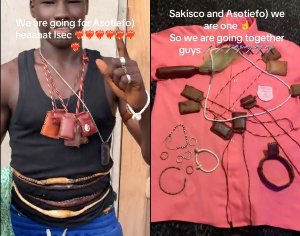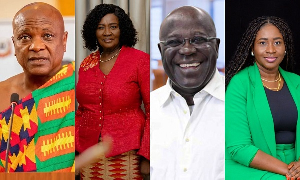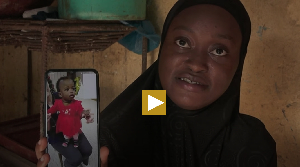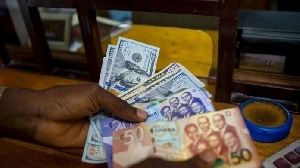The recent critical observation by the Asantehene, Otumfuo Osei-Tutu II, at the German-Africa confabulation in Wiesbaden, Germany, that perhaps the single greatest bottleneck to postcolonial African development is one of blistering crisis of confidence, could not have come at a more opportune moment. The Asantehene, it is significant to observe, also lamented the fact that contemporary Ghanaians appeared to be woefully bent on blindly assimilating foreign cultural values at the expense of their own rich cultural heritage (see “Africans Lack Confidence – Otumfuo” Ghanaweb.com 11/6/07).
And on the preceding score, it goes without saying that Otumfuo Osei-Tutu II knows exactly what he is talking about, for no Ghanaian ethnic group, or sub-nationality, fought harder than the Asantes against both the gradual encroachment and peremptory usurpation and occupation of our country.
Interestingly and ironically, the Asantes have also been damned by other Ghanaian ethnic groups for their imperialistic tendencies by way of attempting to heroically integrate disparate pre-colonial Ghanaian polities into an organic whole. Even so, it can hardly be gainsaid that Great Asante continues to offer enviable socioeconomic and political stability to postcolonial Ghana. And on the preceding score, it is also edifying to observe that in his neocolonialist attempts at summarily dismantling the august institution of the monarchy, the Asantehene’s stool was unarguably the single most-feared traditional authority in the jaundiced imagination of President Kwame Nkrumah. We must also hasten to add that the bulk of the raging chieftaincy disputes in the country were fomented by Nkrumah’s Convention People’s Party (CPP), in the latter’s ill-advised attempt at duplicating the Lugardian policy of “Warrant Chieftains,” by creating expedient paramountcies – or paramount chieftains – out of rebellious and opportunistic sycophants of Nkrumah’s CPP. Consequently, quite a remarkable number of illegitimate chieftains were created with the sole objective of facilitating the implosion of this august, unique and civilized institution. Unfortunately, rather than objectively envisage President Nkrumah for what he veritably was, vis-à-vis his nihilistic attempt to alienate Ghanaians from their indigenous culture by creating pseudo-Marxist (or was it Nkrumaist) automatons out of them, some cynical sympathizers of Ghana’s first premier prefer to envisage this culturally addled and outright Eurocentric leader for what he definitely and patently was not – an indigenous cultural maven and Afrocentric cultural constructionist.
Needless to say, a salient marker of abject cultural alienation, on the part of postcolonial Ghanaians, is the inordinate penchant for double European personal names – as opposed to surnames – by many a Western-educated individual. This crisis of cultural confidence may also be observed at child-naming ceremonies – or during outdoorings – among Ghanaian Christians. Recently, for example, this author witnessed one such ceremony during which the traditional dipping of liquor onto the tongue of the child being named was bizarrely replaced by sugar. And so where the established practice had been to alternately dip water and liquor onto the tongue of the baby being named (mind you, I did not say “Christened”), in a bid to enabling him/her to wisely and symbolically tell the painful and pleasurable apart from one another (as well as truth from falsehood), what we had here was sublimated deception parading as Christian epiphany.
It was all too predictable when I asked about the rationale behind the abrupt substitution of sugar ( I am also reliably told that salt is also used interchangeably with sugar) for the traditional dip of liquor. An edict, I was told, had come down from the Accra headquarters of the Presbyterian Church of Ghana. In the afore-referenced edict, the Moderator and the Synod had determined that dipping liquor onto the tongue of the child being “christened” was tantamount to inculcating falsehood and drunkenness into the child. (How about sugar giving rise to juvenile diabetes and kleptomania, and salt unprovoked bitterness and premature hypertension in the child being christened?) Rather fascinating, I thought, except that such logic had neither factual validity nor metaphysical rationality. Otherwise, for instance, why would Jesus Christ, of Nazareth, conjure vintage wine at the Biblically-famous wedding when the same rapidly ran out? The wedding couple and their families had not anticipated the humongous turnout. And, needless to say, we all know that what makes wine deserve its distillery designation is the basic fact of its alcohol content.
In any case, I demanded to know, precisely why the Moderator’s edict had not permitted the use of wine in place of London Dry Gin, Schnapps’ or Whisky, since dipping such generous pinches of sugar onto the tongue of the newly-born, as a “christening” ritual, could well infect this innocent member of the human race with Diabetes, a disease which is equally as deadly as liquor, when either substance is imbibed or absorbed immoderately. In sum, it is our convicted contention that modernity simply implies a constructive streamlining of tradition with facility, be the latter material, scientific or cultural. For modernity is a progressive mechanism for existential enrichment, by way of measured integration, rather than an indiscriminate disintegration of the fundamentally indispensable in exchange for ersatz, or the quintessentially inauthentic.
Interestingly, wittingly or unwittingly, Otumfuo Osei-Tutu II paid a glowing tribute to another celebrated and progressive monarch of yesteryear, Osagyefo Nana Ofori-Atta I, perhaps the greatest Ghanaian traditional ruler of the first-half of the twentieth century, when the regnant Asantehene made the following observation: “Tradition and modernity should work together. They must not be seen as mutually exclusive[,] but rather complementary to each other.”
The foregoing strikingly recalls the famous debate between Osagyefo Ofori-Atta I, representing indigenous Ghanaian culture, and the Rev. Prof. C. G. Baeta, representing the Presbyterian Church of Ghana, and the Christian faith, during a Synod session of the Church at Kyebi in the early 1940s. Ultimately, while the Okyenhene cogently and vigorously advanced the imperative need for a mutually respectable forging of cultural hybridity in order to guarantee the salutary development of Ghana, the Rev. Baeta appeared to cavalierly super-ordinate Western Christianity at the expense of indigenous Ghanaian cultures. It is also significant to observe that the Asantehene, Otumfuo Osei-Tutu II, appears to follow in the footsteps of Nana Ofori-Atta I, the first major traditional Ghanaian ruler to establish an Educational Fund, as well as personally sponsor the construction of the first modern, model secondary educational institution, The Abuakwa State College (ABUSCO) which, until very recently, educated more Asante students, as a single junior academy, than either of the eponymous Asante flagship academies, namely, Prempeh College, my alma mater, and the Opoku Ware School.
It was also rather quaintly amusing, in an elegiac sense, of course, that on the day that Ghanaweb.com published the announcement of the Asantehene’s invitation by the German government, along with a host of other significant postcolonial African heads-of-state, to participate in the German-Africa Dialogue, a published photographic image of the Asantehene sported this rather irreverent question as its caption: “[Asantehene] a head-of-state?” I chuckled wistfully and almost tearfully said to myself in Akan: “Akom ko ma ato ntwawoho,” loosely translated as: “The dervish has given way to pointless gyrations.”

Views expressed by the author(s) do not necessarily reflect those of GhanaHomePage.














